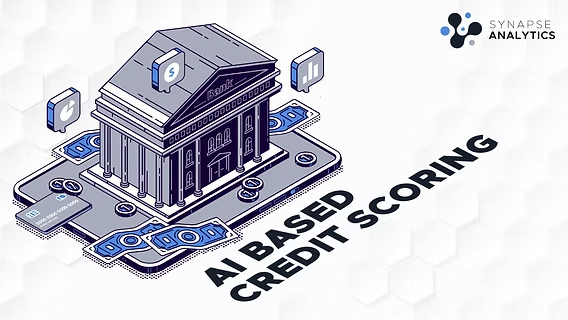Global Expansion Strategies for FinTechs in Emerging Markets: A Playbook for Leaders
2nd August 2025
.jpg) The Future of Payments: Trends Reshaping Transactions in 2025
The Future of Payments: Trends Reshaping Transactions in 2025
 How AI is Transforming the Credit Scoring System
How AI is Transforming the Credit Scoring System
 What the Future Holds for Digital-Only Banks: Navigating the Next Era of Banking
What the Future Holds for Digital-Only Banks: Navigating the Next Era of Banking
 The Impact of 5G on Fintech Services
The Impact of 5G on Fintech Services
 The Role of Cryptocurrencies in Cross-Border Payments
The Role of Cryptocurrencies in Cross-Border Payments
 QR Codes and the Cashless Leap: Transforming India's Financial DNA
QR Codes and the Cashless Leap: Transforming India's Financial DNA
 The Rise of Contactless Payments: Benefits and Security Concerns
The Rise of Contactless Payments: Benefits and Security Concerns
 Biometric Payments: The Next Big Trend in Secure Transactions
Biometric Payments: The Next Big Trend in Secure Transactions
 How Open Banking is Shaping Financial Services Globally
How Open Banking is Shaping Financial Services Globally
 Top Fintech Innovations Shaping 2025: The Future of Finance
Top Fintech Innovations Shaping 2025: The Future of Finance
 Flipkart Gets a Lending Licence: A Bold Leap into Embedded Finance
Flipkart Gets a Lending Licence: A Bold Leap into Embedded Finance
 The Evolution of Fintech Regulation: What’s Next?
The Evolution of Fintech Regulation: What’s Next?


18 April 2025
4 min read
265
Redefining Risk, Access, and Financial Inclusion
Traditional credit scoring has long served as the foundation for lending decisions—but in today’s fast-evolving financial ecosystem, it’s no longer enough. Limited by outdated data points, rigid formulas, and historical biases, conventional credit assessments often exclude large segments of the population. That’s where artificial intelligence (AI) is rewriting the rules.
AI-powered credit scoring is not just an incremental upgrade—it's a paradigm shift. It brings in broader, real-time, and alternative data to build more accurate, inclusive, and dynamic risk profiles. For fintech lenders and digital banks, this means faster decisions, smarter lending, and more accessible credit.
Traditional scoring systems rely on a narrow set of variables—like repayment history, income, and outstanding debt. This leaves out millions who may not have formal credit histories but are financially active and creditworthy.
AI flips this approach by analyzing a wide range of structured and unstructured data sources, such as:
Digital payment behaviors
Utility bill and mobile top-up patterns
Employment stability via social profiles
E-commerce activity
Banking and transaction history
Behavioral signals like app usage and typing speed
By learning from patterns rather than just scores, AI builds a more nuanced understanding of risk—one that evolves in real time and adapts to new information.
AI models can evaluate applicants with little to no credit history—commonly referred to as “thin-file” or “new-to-credit” individuals. This unlocks credit access for gig workers, self-employed individuals, and rural populations who were previously underserved.
AI streamlines the underwriting process by offering instant assessments. This allows fintech platforms to deliver on-the-spot approvals, improving user experience and increasing loan conversion rates.
With better data inputs and predictive modeling, AI-based scores often outperform legacy systems in identifying high-risk profiles. This leads to smarter lending decisions and lower non-performing asset (NPA) ratios.
AI systems don’t just provide a score—they continuously learn from new data. This ensures models remain current, flexible, and responsive to changing economic conditions or customer behavior.
Despite the benefits, integrating AI into credit scoring comes with its own set of challenges:
Data privacy and consent: Ethical collection and use of customer data must comply with regulations.
Explainability: Black-box models can create trust and regulatory issues if decisions aren’t transparent.
Bias in algorithms: AI is only as fair as the data it learns from. Lenders must guard against replicating human bias in digital form.
Regulatory compliance: As AI-based lending grows, financial regulators will expect frameworks for auditability and fairness.
Fintech companies are leading the charge in adopting AI-based credit scoring—particularly in emerging markets where traditional scores fall short. Here's how they can stay ahead:
Build ethical AI models with human oversight and transparency.
Use alternative data responsibly to improve inclusion without compromising privacy.
Invest in model validation and monitoring to ensure ongoing accuracy.
Collaborate with regulators to establish trustworthy AI governance frameworks.
AI is not just enhancing credit scoring—it’s transforming the entire approach to lending. By using real-time data and machine learning, it’s making financial access more inclusive, risk assessments more accurate, and decisions faster than ever before.
For fintech innovators, the future of credit lies not in historical scores, but in intelligent systems that can see the bigger picture—fairer, faster, and more human.
Read Next
 News
News
 Article
Article
 News
News
 News
News
 Blog
Blog
Live Polls
Live Discussion
Topic Suggestion
Whom Do You Wish To Hear
Sector Updates
Leave your opinion / comment here